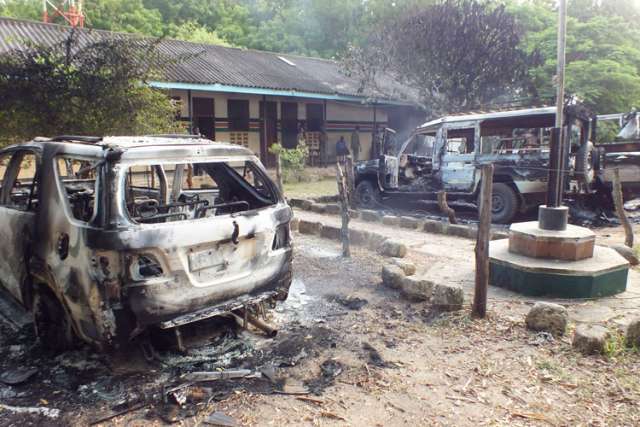On June 15 and 16, armed gunmen stormed Mpeketoni town and nearby villages, killing more than 60 people — an attack described as the worst since the Nairobi Westgate shopping mall attack in September.
The gunmen held the town hostage for more than four hours, burning houses, hotels and banks and even attacking the local police station.
The Islamic militant group al-Shabaab said it executed the attack as revenge for the Kenyan army’s presence in Somalia, the killing of Muslim scholars in the coastal region and the oppression of Muslims.
The government has since said this was not an al-Shabaab attack but was carried out by a gang paid by politicians.
In the coastal region, Muslim leaders said their followers are angry at the unexplained killing of 21 clerics by unknown gunmen. On June 10, Sheik Mohammad Idris, a moderate figure, was shot dead before morning prayers.
But Sheik Abdullahi Abdi, the National Muslim Leaders Forum chairman, said Kenyan Muslims were opposed to anyone using Islam to justify attacks on innocent civilians.
“There can be no justification whatsoever for killing of innocent people,” Abdi told journalists at a news conference in Nairobi, while expressing grief at the attacks.
At the same time, Abdi criticized the government, saying it offered knee-jerk reactions to emerging security concerns, harassing civilians and collectively punishing communities while the perpetrators planned more attacks.
“We call upon the government to give its utmost priority to security matters,” said Abdi.
The Rev. Peter Karanja, general secretary of the National Council of Churches, demanded that the government take decisive action to stem the rising stream of insecurity.
“This is the time for the government to move with speed,” said Karanja. “It is time for the government to be seen to act. Kenyans are expecting nothing less than the arrest and prosecution of the perpetrators.”
In Nairobi, Roman Catholic Archbishop Zacchaeus Okoth said the attack was another indicator of growing insecurity.
Tensions have been heightening as the government resists calls by opposition parties for national dialogue on issues such as the Islamist threats.


